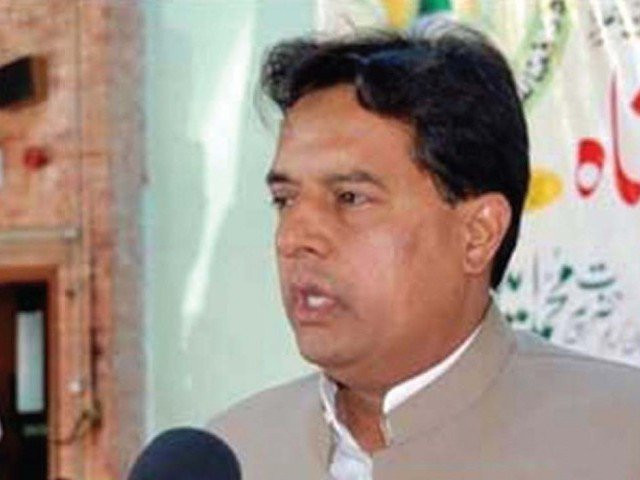IHC dismisses NAB plea challenging Captain Safdar's bail
Court had reserved judgment on December 14, 2017

Captain (retd) Muhammad Safdar. PHOTO: FILE
A division bench of the IHC, comprising Justice Aamer Farooq and Justice Mohsin Akhtar Kayani, had reserved the judgment after NAB prosecutor Sardar Muzaffar Abbasi and the defence counsel Amjad Pervez had completed arguments on December 14, 2017.
Following the decision, the NAB chairman said in a statement that the bureau would challenge the decision before the Supreme Court.
NAB had approached the IHC, requesting it to set aside the accountability court order of October 9 by declaring it ‘illegal’ and consequently, Safdar be remanded into judicial custody.
During the hearing, the NAB prosecutor had argued that the investigation officer had specifically been directed by the accountability court – conducting trial of Sharif family – to execute non-bailable warrants against Safdar. He added that the warrant should not be treated as summons.
Abbasi said the October 9 judgment, which allowed Safdar’s release from the custody on submission of Rs5 million surety bonds, was “absolutely not applicable”. He added that the only way to move forward after an arrest was to be released on bail, not bonds.
The two-member bench had asked Abbasi whether NAB always sought permission from the court before arresting suspects.
IHC reserves verdict on NAB plea challenging Captain Safdar's bail
Abbasi clarified that he was not asking for physical custody remand but seeking judicial remand of the accused. He also said NAB had made the same request before the trial court.
The anti-corruption watchdog’s petition to the IHC highlighted that Safdar did not appear before the court in various hearings, avoided the process of law and tried to hamper the proceedings which are to be concluded within a period of six months.
Justice Kayani had observed that the trial court only had to ensure presence of the accused for hearing but to keep the accused behind bars was up to the investigating agency.
He had said the accountability watchdog had authority to arrest suspects at any given stage during investigations just as a suspect had the right to apply for pre-arrest bail if he was apprehensive, reminding the prosecutor that it was the NAB’s job to create such a scenario.
The defendant’s counsel had countered arguments by the NAB prosecutor while relying upon the same judgment used by the prosecutor in his arguments to make his case. He said if the accused appeared or was brought before the court, he could execute bonds under Section 91 of the Criminal Procedure Code.
He had added that the purpose of issuing non-bailable warrants was to ensure that the accused attended trial. “The purpose is to appear and answer the charge,” he said, adding Safdar was continuously appearing before the court.
Justice Kayani remarked that it was clear that bail was not required if someone appeared or was brought before the court, undertook to face trial and continued to appear before the court.
When the defence counsel informed the court that he wanted to make some more submissions, Justice Kayani remarked that he had already provided enough substance. Subsequently, Justice Kayani while addressing the NAB prosecutor said if the graft watchdog required custody of the accused, it should ask the authorities concerned to issue such orders.
Following the hearing, the court had reserved verdict which was announced on Feb 19.



1724319076-0/Untitled-design-(5)1724319076-0-208x130.webp)















COMMENTS
Comments are moderated and generally will be posted if they are on-topic and not abusive.
For more information, please see our Comments FAQ